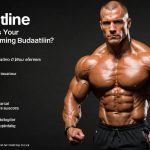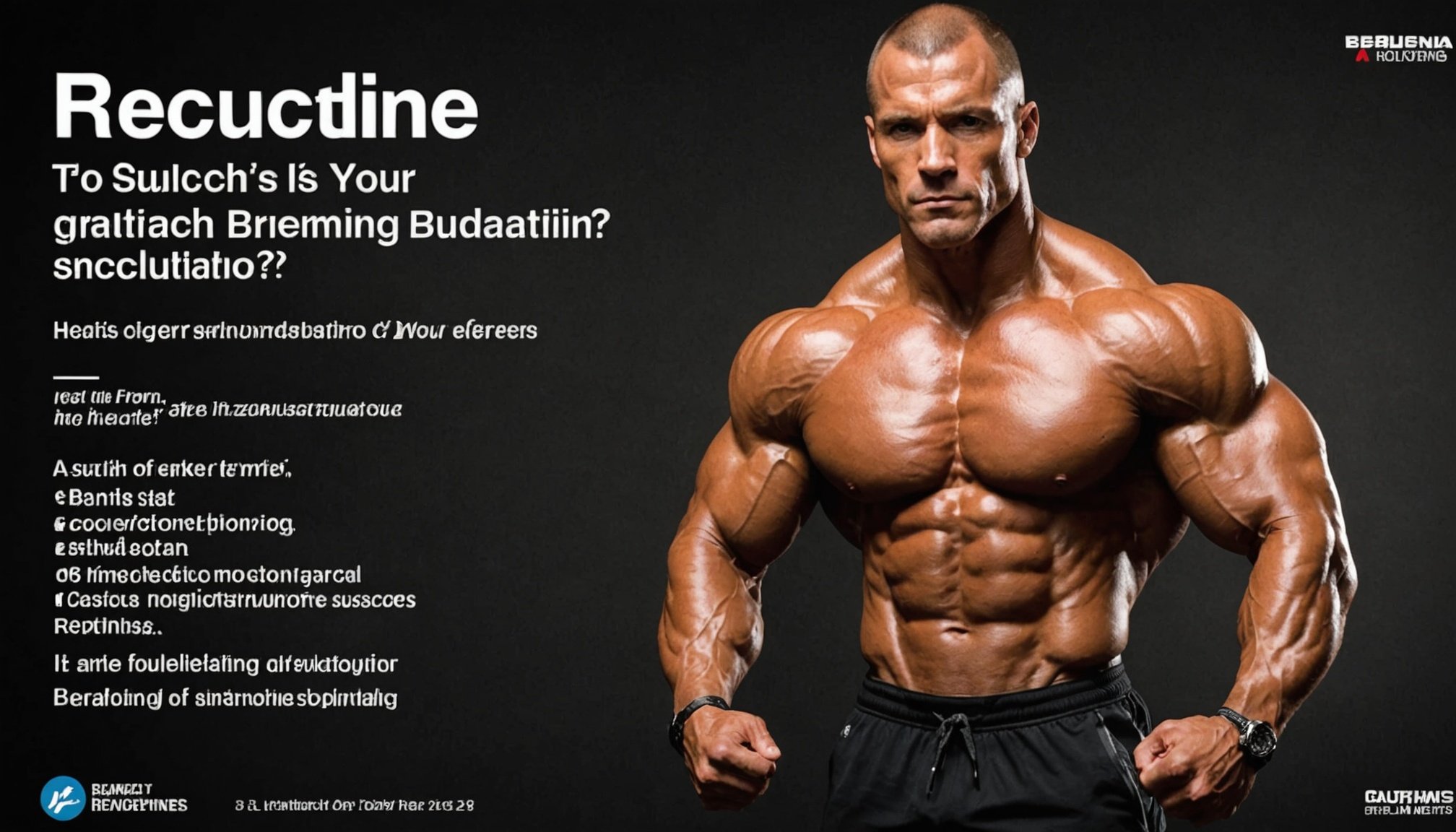As you venture into the realm of bodybuilding, you inevitably encounter a multitude of factors that influence your ability to build muscle and strength. You’re aware of the importance of maintaining a balanced diet, engaging in regular exercise, and ensuring adequate sleep. However, have you considered the role your genetics play in your bodybuilding journey? The truth is, your genes can significantly impact your bodybuilding success. They can affect your muscle mass, strength, and overall training efficiency. This article provides a detailed insight into the pivotal role of genetics in your bodybuilding efforts.
The Connection Between Genetics And Muscle Mass
Understanding how genetics influences muscle mass is crucial for any aspiring bodybuilder. Research reveals that there are indeed certain genes which affect muscle mass growth.
In the same genre : How do different types of muscle fibers respond to various workouts?
Genes are segments of DNA that contain instructions for producing proteins, which are essential for the growth and repair of body tissues, including muscles. Certain genetic variations can influence the amount, type, and effectiveness of these proteins, thereby affecting muscle growth.
For instance, the myostatin gene is known to regulate muscle growth. Individuals with a certain variation of this gene tend to have larger muscles and less body fat. Some athletes are even found to have a mutation in the myostatin gene that results in exceptional muscle mass and strength.
Also to read : What advanced techniques can boost muscle growth in seasoned athletes?
Similarly, the ACTN3 gene, often termed the “speed gene” also plays a key role in muscle development. It influences the production of a protein found in fast-twitch muscle fibers, which are responsible for generating quick, powerful bursts of speed and strength. Some bodies naturally produce more of this protein, giving them a genetic advantage in sports and bodybuilding.
Genetics And Your Body’s Response To Training
Just as genetics can determine your natural muscle mass, it can also influence how your body responds to training. Some bodies are naturally more responsive to resistance training, enabling them to build muscle and strength faster than others.
Your genes can impact numerous aspects of your response to exercise, from the rate of muscle growth to the speed of recovery. They can affect your muscular endurance, metabolic rate, and even your susceptibility to injury.
For instance, variations in the COL5A1 gene, which is associated with the production of a type of collagen found in tendons and ligaments, can influence your risk of sports-related injuries. If you have a certain version of this gene, your body may produce less collagen, making your tendons and ligaments more prone to injury during intense training.
The Influence Of Genetics On Protein Synthesis
Protein synthesis is the process by which your body creates new proteins, which are crucial for muscle growth and repair. Your genetics can significantly impact this process, influencing both the rate of protein synthesis and the efficiency of protein utilization.
The gene called mTOR plays a crucial role in this process. It regulates protein synthesis and has a direct impact on muscle growth. Certain genetic variations can result in a more active mTOR pathway, enhancing protein synthesis and promoting muscle growth.
On the other hand, variations in the gene MCT1 can influence your body’s ability to transport lactate, a by-product of intense exercise. A more efficient lactate transport system can improve your recovery rate and enhance your overall training performance.
Genetic Testing For Bodybuilding Success
Given the significant influence of genetics on bodybuilding success, genetic testing has gained popularity among athletes and fitness enthusiasts. These tests can provide valuable insights into your genetic makeup and help you tailor your training and nutrition strategies to your genetic strengths.
Genetic testing can reveal information about your muscle fiber type, metabolic rate, protein synthesis, injury risk, and more. For instance, if you’re genetically predisposed to have a high number of fast-twitch muscle fibers, you might excel in power and strength-based exercises. Conversely, if you have a high number of slow-twitch fibers, endurance-based exercises might be more suitable for you.
However, it’s worth noting that while genetics can provide a foundation, it’s not the sole determinant of your bodybuilding success. Your dedication, nutrition, training regimen, and overall lifestyle contribute significantly to your bodybuilding achievements.
The Interplay Of Genetics And Environment In Bodybuilding
While it’s evident that your genes play a significant role in influencing your bodybuilding success, it’s equally important to acknowledge the role of non-genetic factors. Your environment, diet, sleep, stress levels, and training techniques all interplay with your genetic makeup to shape your bodybuilding journey.
For example, while your genes might influence your muscle fiber type, research shows that training can alter the characteristics of these fibers. High-intensity training can increase the size and strength of fast-twitch fibers, while endurance training can enhance the efficiency of slow-twitch fibers.
So, while you cannot change your genetic makeup, you can maximize your genetic potential through targeted training, proper nutrition, and adequate recovery. The combination of understanding your genetics and adapting your lifestyle is the key to optimizing your bodybuilding success.
Remember, while genetics can provide a platform, your true potential lies not in your genes but in your efforts, discipline, and determination.
How Genetics Influence Your Nutrition and Recovery
The role of genetics in bodybuilding extends to nutrition and recovery as well. Genes influence your metabolism rate, which in turn affects how you process and utilize nutrients. Therefore, you might need a diet customized to your genetics to foster optimal muscle growth and athletic performance.
The FTO gene, often associated with obesity, also influences your metabolism and appetite. Certain variations in this gene can increase your appetite and propensity to gain weight. Understanding this can help you tailor your diet to manage your calorie intake effectively while building muscle.
Furthermore, genes like CLOCK and PER2 influence your circadian rhythm, thereby affecting your sleep patterns. Sleep is vital for recovery and muscle growth, as it’s during deep sleep that growth hormone is released, promoting muscle repair and growth. People with certain variations in these genes might need more sleep for adequate recovery, affecting their workout schedules and rest periods.
Lastly, the ADRB2 gene can influence your body’s response to adrenaline, which can impact your energy levels, recovery rate, and even fat loss. Certain variations in this gene can make you more prone to muscle soreness and longer recovery periods, affecting your training frequency and intensity.
The Final Word: Genetics, Hard Work, and Bodybuilding Success
In conclusion, while genetics indeed play a significant role in your bodybuilding journey, it’s important to remember that it’s just one piece of the puzzle. Even with the ‘perfect’ bodybuilding genetics, muscle building still requires dedication, hard work, and a balanced lifestyle.
Your genetics might influence your muscle mass, muscle fibers, and body composition. Still, without a well-designed strength training routine, proper nutrition, and adequate rest, you won’t be able to fully tap into your genetic potential for muscle growth and strength.
Genetic testing can provide valuable insights into your genetic advantages and disadvantages when it comes to bodybuilding. However, these tests are not a crystal ball that predicts your bodybuilding success. They should serve as a guide to help you customize your training and nutrition plans, not a determinant of your fate in bodybuilding.
Remember, your true potential lies in your efforts, discipline, and determination. Genetics might provide the foundation, but it’s your hard work, discipline, and commitment that will determine your bodybuilding success. Every step you take in your bodybuilding journey—every weight you lift, every meal you eat, every hour you sleep—counts more than your genetic makeup.
So, even if you don’t have the ‘ideal’ genetics for bodybuilding, don’t let that discourage you. With hard work, consistency, and the right approach, you can build muscle, improve your body composition, and achieve your bodybuilding goals. Because, at the end of the day, nothing beats the power of hard work.






